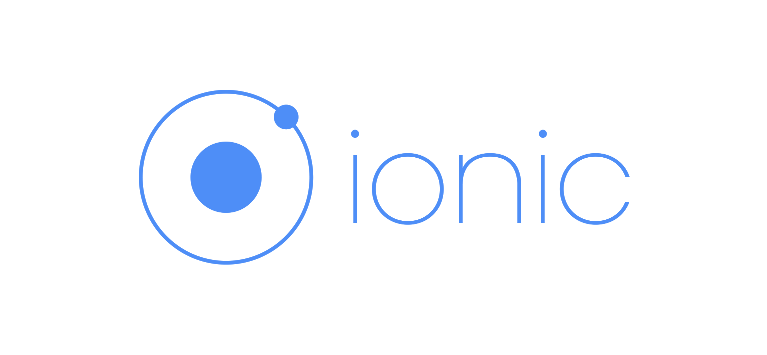How to Build a Mobile App with Ionic that Extends Your ecommerce Business's Reach
Building your app light and fast makes for a better customer experience.
There are compelling arguments for both mobile optimized sites and mobile apps for ecommerce. If you've decided to develop an application, sleek, effective, lightweight mobile apps are absolutely essential to reaching customers in today’s mobile-driven ecommerce market. The HTML5-based Ionic Framework blends native and web-based app technologies into a ideal hybrid app solution. With just a few customizations, the Ionic Framework can be a powerful ecommerce tool for any business.
Advantages of Hybrid Apps for ecommerce
 Consumers are spending more time on apps and less time on the mobile web, making it more difficult for companies to reach their customers. In 2014, mobile users spent just 14% of their mobile device time browsing the mobile web. The other 86% was spent using apps. The need for businesses to adapt to the mobile app marketplace cannot be overstated.
Consumers are spending more time on apps and less time on the mobile web, making it more difficult for companies to reach their customers. In 2014, mobile users spent just 14% of their mobile device time browsing the mobile web. The other 86% was spent using apps. The need for businesses to adapt to the mobile app marketplace cannot be overstated.
A hybrid mobile app combines the advantages of a native app and a mobile website into one cohesive mobile application. Hybrid apps are basically small websites that are installed and function like a native app.
Hybrid apps have many advantages. Like native applications, they have excellent integration into device technology and can push notifications. They can also gather data, including contacts, from other installed apps. However, they also offer an improved user experience and access to extended web-based content.
Avoid Customization Mistakes With an Experienced Ionic Developer
 Inexperienced mobile developers frequently make several fatal customization mistakes. For example, one should never edit variables directly in www/lib/ionic/scss_variables.scss because these changes will always be overwritten by future Ionic updates. Developers should also be careful about saving their style folders in the correct folder or subfolder, which isn’t always an intuitive process. Ionic is a powerful and effective framework, but it should always be customized by someone familiar with the platform.
Inexperienced mobile developers frequently make several fatal customization mistakes. For example, one should never edit variables directly in www/lib/ionic/scss_variables.scss because these changes will always be overwritten by future Ionic updates. Developers should also be careful about saving their style folders in the correct folder or subfolder, which isn’t always an intuitive process. Ionic is a powerful and effective framework, but it should always be customized by someone familiar with the platform.
Make Hybrid Ionic Apps Feel Native
 The default Javascript scrolling can be choppy and inconvenient for users. This problem can be avoided by editing the code to enable native scrolling. Simply add “overflow-scroll=’true’” to the ion-content tag to make this adjustment. However, it is important to note that this correction is not always effective on iOS devices.
The default Javascript scrolling can be choppy and inconvenient for users. This problem can be avoided by editing the code to enable native scrolling. Simply add “overflow-scroll=’true’” to the ion-content tag to make this adjustment. However, it is important to note that this correction is not always effective on iOS devices.
Also, developers can choose to implement native transitions into their hybrid apps with a Cordova plugin titles “Native Page Transitions.” This plugin uses native hardware and allows developers to control the type, duration and direction of various animated transitions. Slide, flip, curl and fade options are available.
Make it Fast for Customer Engagement
Speed is almost always the biggest complaint consumers have with web-based and hybrid apps. While hybrid apps are certainly faster than the mobile web, there are several tactics that developers can use to increase the speed of their Ionic apps.
Caching is an important technique that enables downloaded content to be saved to storage. For example, when a customer views a particular item’s description page, that content can be saved so that it can be opened repeatedly without another time-consuming HTTP request. The result is a faster load time for pages that are frequently viewed.
Removing unessential web-based content is another option for speeding up hybrid apps. If the app access significant amounts of web-based content, such as external maps, the load time can become excessive. Nearly half of all mobile internet users expect a page to load in two seconds or less and nearly 40% of consumers will leave a page that takes three seconds or longer to load. According to Kissmetrics, a one second delay in loading can cause a seven percent reduction in conversions!
Caching, compressing and removing as much content as possible will result in a simple, lightweight mobile app that will increase consumer satisfaction and boost sales.
Security Builds Consumer Confidence
 According to Pew Research, more than 50% of app users have uninstalled or avoided installing an app because of security concerns. Users may be wary of apps that require excessive permissions or do not password-protect sensitive data. However, back-end security concerns like comment lines can also present security concerns for hybrid apps.
According to Pew Research, more than 50% of app users have uninstalled or avoided installing an app because of security concerns. Users may be wary of apps that require excessive permissions or do not password-protect sensitive data. However, back-end security concerns like comment lines can also present security concerns for hybrid apps.
If an app requests excessive permissions, especially for seemingly unrelated information, users may consider it too invasive. For example, a flashlight app can reasonably need access to a camera but does not need access to the phone’s contacts. Since required permissions are typically displayed before the app is installed, requesting too many permissions can dissuade consumers from installing the app.
Back-end security concerns are less obvious but equally dangerous. For example, since someone can decompile the application and view any comment lines in the code it is important to remove them before production. Of course, encryption and other standard security measures are always advisable.
Leverage Existing Web Systems
Companies can deploy their apps faster by utilizing existing assets and minimizing the amount of time spent developing new content. In addition to saving time and money, this allows customers to enjoy a seamless and consistent shopping experience across multiple devices and platforms. A properly designed Ionic hybrid app will become a natural and logical extension of the company’s existing web presence.
contact Clarity For a Free Consultation
contact Clarity today to see how their proven ecommerce solutions can benefit your business. Maximize your online sales with our customizable, scalable solutions for your enterprise-level business. contact us today for a free quote and consultation to discover how our experienced developers and streamlined ecommerce solutions can benefit your business.